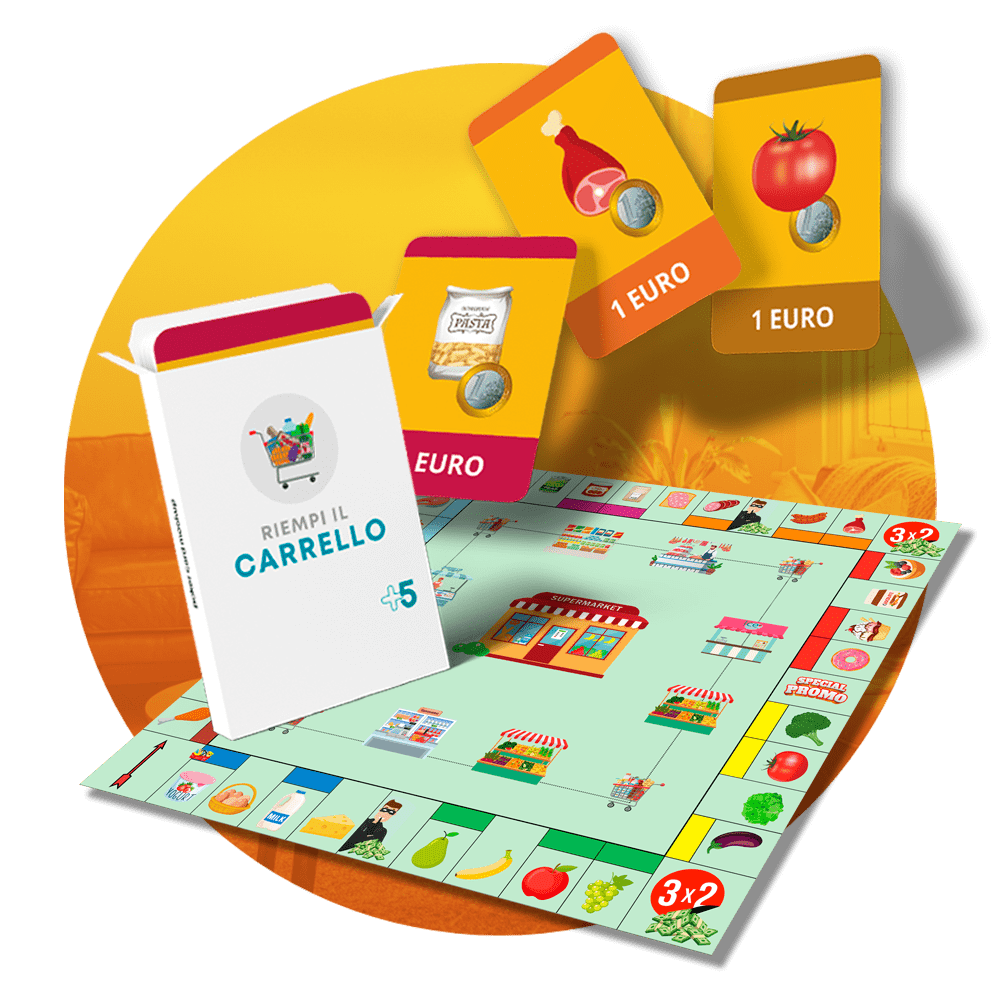Board Games
Financial literacy is one of the most valuable skills we can teach our children. Financial education board games are playful and interactive tools designed to teach children and teenagers the fundamental principles of money management, saving, and financial planning. These games turn complex financial concepts into engaging activities, making learning fun and accessible for young people of all ages.

Board Games



Finance Made Simple
Understanding financial concepts can seem like a daunting task, but thanks to our Finanza Facile® method, we can make everything simpler and more accessible. It’s a practical, straightforward approach that demystifies personal finance and makes financial concepts easy for everyone. Whether you’re looking to save for the future, better manage your budget, or understand how to invest without falling into mental traps, the Finanza Facile® method provides you with the tools and knowledge you need.


Our Board Game Titles
Financial education board games are educational tools that use the traditional board game format to teach children and teenagers key personal finance concepts. These games are designed to simulate real financial situations, such as managing a budget, saving for a goal, or investing in assets. Through gameplay, participants face financial decisions, learn to manage limited resources, and directly experience the consequences of their economic choices.
Each game is structured with simple rules and mechanisms that encourage strategic thinking and long-term planning. The games can be played individually or in groups, making them ideal for use in school settings, at home, or during extracurricular activities. Thanks to their interactive format, these games capture the interest of young people, stimulating their curiosity and making personal finance learning a positive and enjoyable experience.



Why Choose Them
Learning Through Experience: Financial education board games allow children and teenagers to learn through direct experience. During the game, participants make financial decisions that influence the final outcome, allowing them to see the consequences of their choices in a safe and controlled environment. This hands-on approach helps young people better understand financial concepts and develop skills they can apply in real life.
Development of Fundamental Financial Skills: Through board games, young people learn to manage a budget, save for specific goals, make investment decisions, and plan for the future. These skills are essential for personal finance management and prepare children and teens to face the economic challenges they will encounter as adults. Board games offer a structured and fun way to acquire these skills gradually and naturally.
Promoting Critical Thinking and Planning: Financial education board games encourage critical thinking and strategic planning. Players must consider their resources, evaluate risks and benefits, and make decisions that will influence their success in the game. This form of learning develops the ability to analyze complex situations, think long-term, and make thoughtful decisions—vital skills for effective financial management.
Teaching Positive Financial Values: In addition to teaching practical skills, board games promote positive financial values like saving, responsibility, and careful money management. Young people learn the importance of saving for the future, avoiding debt, and making informed financial choices. These values are crucial for building a strong foundation of financial awareness and fostering healthy habits that will last a lifetime.



Where to use them
In School: Teachers can integrate financial education board games into the school curriculum as part of economics, math, or civics lessons. These games can be used to make lessons more dynamic and interactive, helping students better understand financial concepts through play. They can also be used during group activities, promoting collaboration and teamwork.
At Home: Parents can use board games as educational tools during leisure time, turning family evenings into an opportunity to teach their children the basics of personal finance. Playing together not only strengthens family bonds but also gives parents a chance to discuss money and finance in a relaxed and fun environment. Board games can become a regular and enjoyable way to build financial skills progressively and naturally.
During Extracurricular Activities: Board games can be introduced in school clubs, summer camps, or other extracurricular activities. This makes them ideal for informal settings where young people can learn through play, without the pressure of school assessments. Educators can use these games to introduce financial concepts in an accessible and engaging way, keeping students highly involved.
In Workshops and Seminars: Educators and financial advisors can use board games during workshops and seminars aimed at children, teenagers, or families. These games serve as practical tools for explaining financial concepts interactively and encouraging active participation from attendees. Through gameplay, participants can explore different financial scenarios, discuss their choices, and learn collaboratively.
I più adatti per te
Do you need a tailored solution or a customized product?
Frequently Asked Questions
Financial education is the process of learning and understanding how to manage money effectively. It includes knowledge about saving, investing, debt management, budgeting, and long-term financial planning. The goal is to develop skills that enable individuals to make informed and responsible financial decisions.
Financial education is essential because it helps people better manage their money, avoid financial pitfalls, and plan for the future. Good financial knowledge can prevent issues such as excessive debt, lack of savings for emergencies or retirement, and improve overall economic well-being.
Everyone, regardless of age, social status, or income, can benefit from financial education. Young people can learn to manage their first earnings and savings, while adults can enhance their financial planning and investment skills.
What are the main topics covered in financial education?
Financial education covers a wide range of topics, including:
• Budgeting: How to create and maintain a budget to manage income and expenses.
• Saving: The importance of saving money and strategies to do so.
• Investing: The basics of investing and how to grow your capital over time.
• Debt Management: How to avoid, manage, or reduce debt.
• Planning for the future: How to financially prepare for future events, such as retirement or buying a house.
There are several resources available to improve financial education, including books, online courses, workshops, and financial advisors. Additionally, many banks and organizations offer free financial education programs.
Financial education provides the knowledge and skills to manage money independently, while financial consulting involves receiving personalized advice from a certified professional registered in the financial advisors’ registry.
A good level of financial education contributes to greater economic security and reduces stress related to financial problems. Knowing how to manage money enables more conscious decision-making, improving quality of life and the ability to achieve financial goals.





